Did you know? Walker ClimateCare recently acquired TRS Heating & Cooling and merged with Morrisburg Plumbing & Heating. This allows us to expand our local services to Gananoque, and offer HVAC, Electrical & Plumbing.
Replace your oil furnace with a heat pump and save up to $25,000 in Government Rebates!

Indoor air quality (IAQ) has always been important, but in the past few years it has made headlines as many people were forced to work and spend more time at home. Now more than ever, Canadians understand the role IAQ plays in their everyday lives and are looking for the right solutions for their homes. Air quality includes many different measures of the air you breathe including moisture levels, concentration of pollutants, and allergens such as pollen, mold, bacteria and fungi. The Government of Canada warns that consistent exposure to pollutants in the air can lead to health concerns, which is why it’s so important to take indoor air quality seriously.
There are many factors that affect and change the air quality in your home these include:
There are several products that can be used to improve indoor air quality:
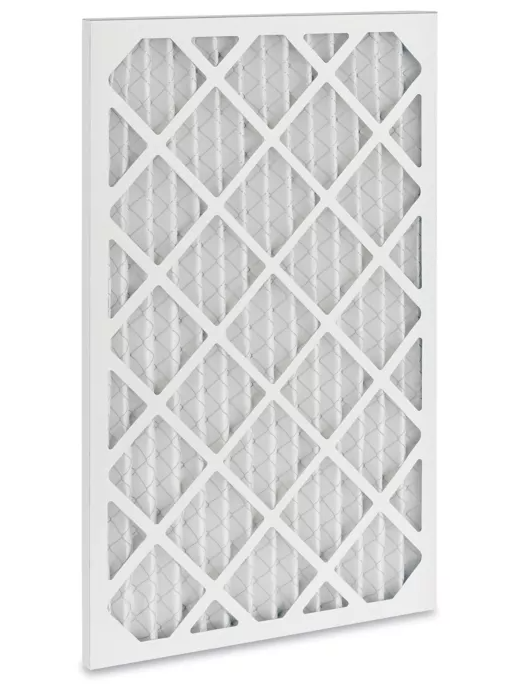

A furnace filter is a replaceable filter that is installed in an air handling unit or furnace to remove particles from the air as it circulates through the system. Its primary function is to improve indoor air quality by trapping dust, dirt, pollen, mold spores, and other small particles.
Furnace filters come in various types and sizes, including disposable fibreglass filters, washable electrostatic filters, pleated filters, and HEPA filters. It’s important to choose the filter that is right for your furnace and your family’s needs.
Size – The filter needs to fit tightly in the filter rack of the furnace or else it won’t effectively filter the air. Typically, filters come in sizes ranging from 1 inch to 5 inches in width. Thicker filters tend to have a longer lifespan as they have more area to capture particles and are generally more efficient at filtering the air than thinner filters. If you plan on replacing your furnace and it currently uses a standard 1-inch filter, you may want to speak with your contractor about adjusting the ductwork to accommodate a media cabinet for a thicker, 5-inch filter. Not only will this reduce the need for frequent filter changes, but it will also help improve your equipment’s efficiency by lowering static pressure build-up in the ductwork.
MERV rating – MERV aka Minimum Efficiency Reporting Value is a scale that measures the effectiveness of air filters. The MERV scale ranges from 1 to 20, with a higher rating indicating a higher level of filtration. For example, a MERV 1 filter only removes large particles such as dust and debris from the air, while a MERV 20 filter can capture tiny particles like bacteria and viruses.
It’s important to note that a higher MERV rating also means that the filter restricts more airflow, which puts more stress on the furnace itself. This is why it’s important to choose a filter with a MERV rating that is appropriate for both your system and your family’s needs. Your lungs have a MERV 8 rating, so to reduce stress on your lungs you should at the very least be using a MERV 9 filter. A MERV rating between 10 and 13 is generally recommended for most homes however, if you struggle with environmental allergies you’ll likely want a stronger filter. Your HVAC technician can help you determine the best MERV rating for your specific situation.
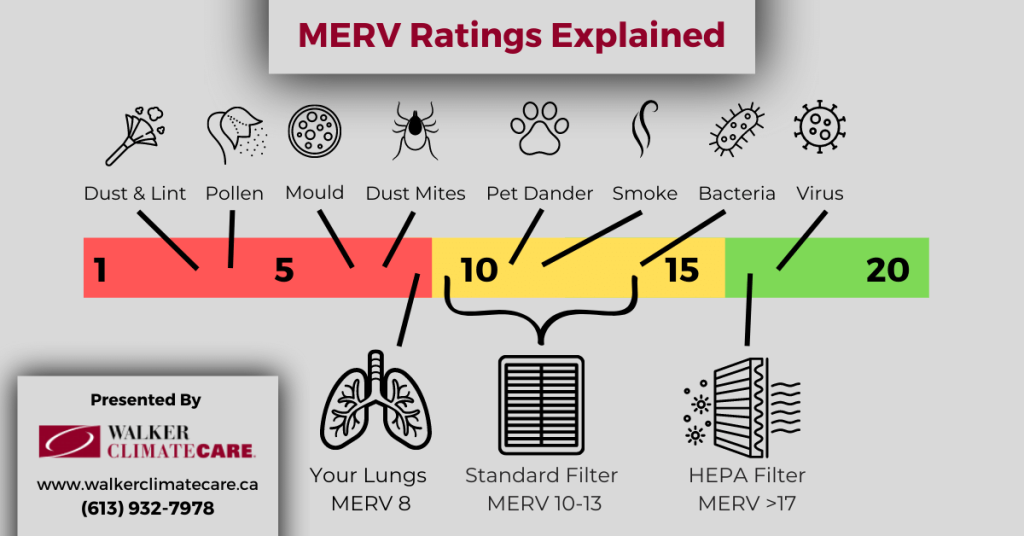
You should be checking your furnace filter every month during peak use. If you hold it up to the light and can’t see light through it you know it’s time to replace it. Every home is different and factors like the presence of pets or renovations will mean you need to change your filter more often.
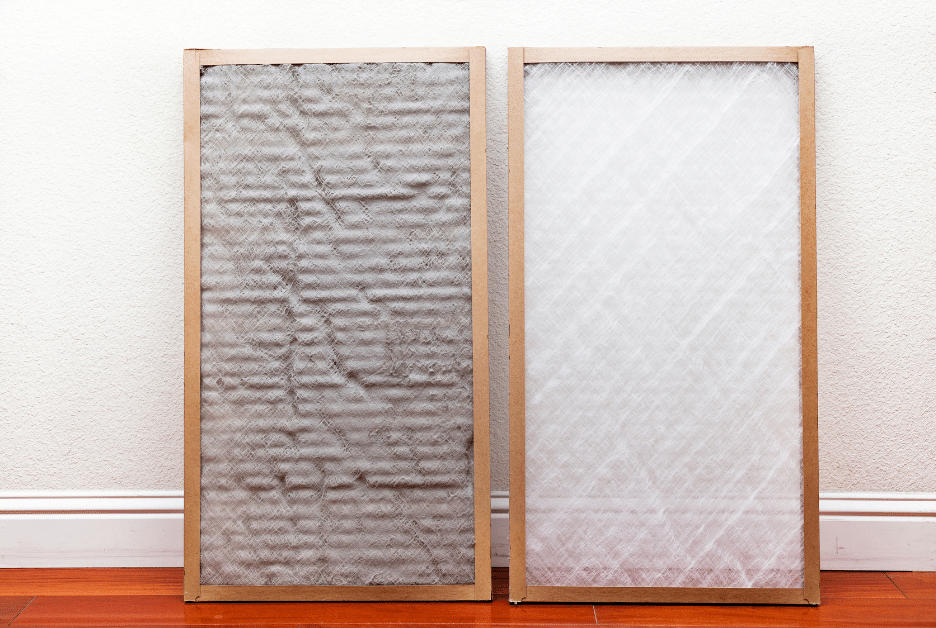
High-Efficiency Particulate Air (HEPA) filters are the top of the line when it comes to furnace filters. HEPA filters are commonly used in medical facilities and laboratories to ensure the cleanliness of the space, but can also be used in the home. To be classified as a HEPA filter, it must filter out 99.97+ % of particles that are 0.3 microns in size or larger – that’s equivalent to a MERV rating of 17 or higher. These are great for people who struggle with allergies or respiratory issues!
Since filtration can affect airflow and therefore the efficiency of your system please contact HVAC professionals before switching to a HEPA filter to ensure it is installed properly.
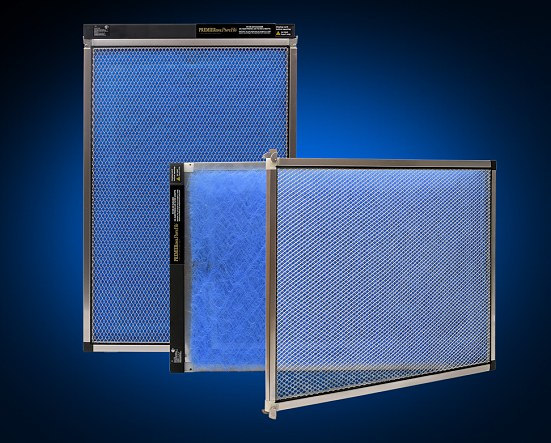
Similar to the HEPA filter a polarized media filter is able to remove very small particles from the air including smoke and bacteria. The difference is that the HEPA filter mechanically filters the air as it is pushed through incredibly small holes, whereas a polarized media filter induces an electrostatic charge to stick the particle to the filter. You can think of it as a magnet that air pollutants stick to.
For more information on how polarized media filters work check out the video below:
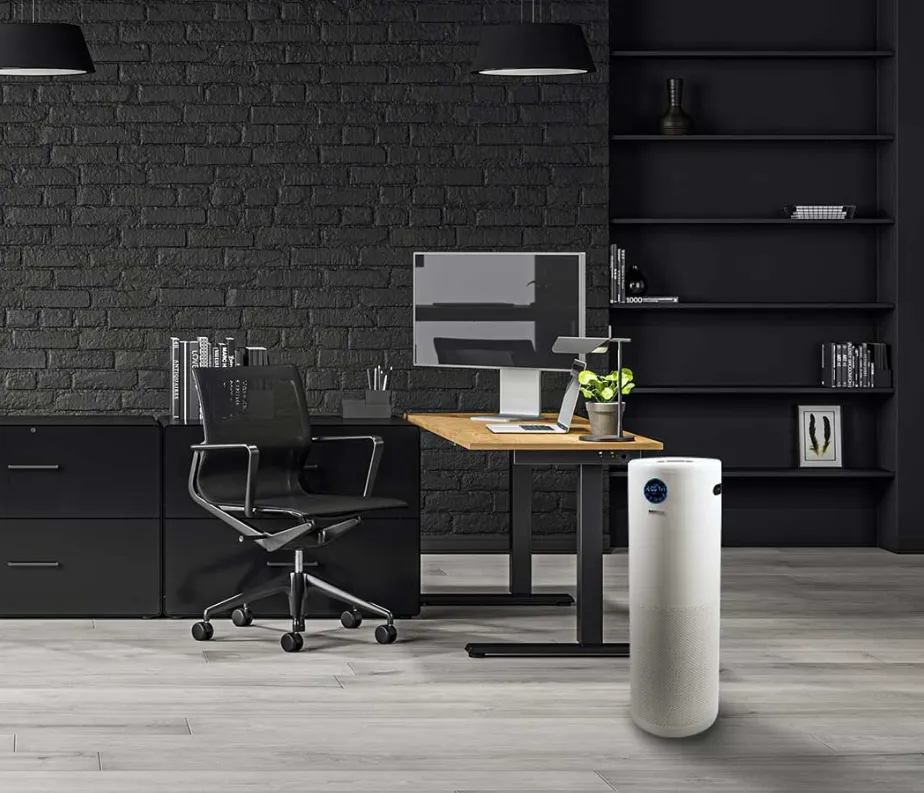
An air purifier cleans the air in much the same way as a furnace filter but is a standalone unit, making it a great option for homes without ducts. Air purifiers can contain high MERV rating filters offering the same benefits as furnace filters. However, the air purifier can not circulate the air throughout the home the same way as the HVAC system can and so it is less effective at distributing the purified air.

UV-C light is a specific wavelength of UV (ultraviolet) light that has germicidal properties, meaning it can kill microorganisms. Similar to how the sun can neutralize or kill many viruses, bacteria, molds, and other airborne pathogens but with a higher intensity. UV-C lights can be installed in the ductwork of your HVAC system, the lights will then sanitize the air as it moves through the system and the clean air will be circulated throughout your home. These systems have been extensively studied by the CDC and have been used safely and effectively for decades.
UV-C light provides an extra level of purification on top of your air filter. Even if you use a HEPA filter particles less than 0.3 microns won’t be caught by the filter, whereas UV-C is highly effective against even the smallest particles such as bacteria and viruses.
For more information on the roles of furnace filters and UV-C light check out this video:
Still have questions about IAQ or want to know more about how these products can be integrated into your home? Set up a free in-home consultation with the experts at Walker ClimateCare. We’re happy to answer all your questions and provide advice tailored to your home.
We’ve been providing quality HVAC services to Cornwall and surrounding areas since 1972. If you are outside of Cornwall please review our service area and we will do our best to help!